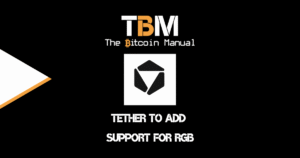Bitcoin DEFI
Home » Bitcoin Finance » DeFi
DeFi is short for “decentralised finance,” an umbrella term for any financial tools that leverage blockchain as the settlement layer. These decentralised applications attempt to disrupt financial intermediaries by providing permissionless access to financial instruments.
DeFi leans towards blockchain, the technology behind bitcoin, which allows several entities to hold a copy of a history of transactions, meaning it isn’t controlled by a single, central source. This allows contracts, agreements and ownership of assets to be recorded using the chain instead of centralised systems.
Traditionally gatekeepers can limit the speed, access and sophistication of transactions while offering users less direct control over their money. DeFi is distinct because it expands the use of blockchain from simple value transfer to more complex financial use cases.

Why is DEFI growing?
DEFI can also be seen as permissionless finance; it allows any user in any part of the world access to financial services without the need for any identification or limitations on location. It will enable people to access global capital markets and leverage their assets to earn a yield and more.
The key benefits of DEFI include:
- Open: You don’t need to apply for anything or “open” an account. You get access by creating a wallet.
- Pseudonymous: You don’t need to provide your name, email address, or personal information.
- Flexible: You can move your assets anywhere at any time, without asking for permission, waiting for long transfers to finish, and paying expensive fees.
- Fast: Interest Rates and rewards often update rapidly (as quickly as every 15 seconds) and can be significantly higher than traditional Wall Street.
- Transparent: Everyone involved can see the complete set of transactions (private corporations rarely grant that kind of transparency)
How does DEFI work?
Users typically engage with DeFi via software called dapps (“decentralised apps”); these are applications that run on a blockchain. Unlike a conventional bank, there is no application to fill out or account to open. The user interacts with a smart contract and makes agreements based on specific criteria either to lock up capital, to lend, to borrow or access money.
Some of the popular ways people are engaging with DeFi today are as follows:
- Lending: Lend out your crypto and earn interest and rewards every minute – not once per month.
- Getting a loan: Obtain a loan instantly without filling in paperwork, including extremely short-term “flash loans” that traditional financial institutions don’t offer.
- Trading: Make peer-to-peer trades of specific assets such as bitcoin and stablecoins — as if you could buy and sell stocks without any brokerage.
- Saving for the future: Put some of your bitcoin into savings account alternatives and earn better interest rates than you’d typically get from a bank.
- Buying derivatives: Make long or short bets on certain assets. Think of these as the crypto version of stock options or futures contracts.
Bitcoin DEFI tools
Due to the constraints of the main bitcoin chain and the layered approach to scaling, DEFI applications on the mainchain have not gained much traction yet. The early projects in the space have focused on either building on popular second layer solutions like the lightning network or liquid network or built a custom second layer solution in the form of the Rootstock network (RSK) and the stacks network.
It’s worth noting that once you move into these second-layer solutions, you are leaving the safety of the main chain, and this comes with its own set of risks.
Share with a friend
If you thought this information was helpful why not share it on your favourite social media network and encourage others to learn more about Bitcoin
The latest news from our blog

What Is the Drama Surrounding Bitcoin Core 30?
The Bitcoin ecosystem is witnessing one of its most contentious debates in years, centred around Bitcoin Core version 30 and its controversial expansion of OP_RETURN

What Is SamRock Protocol?
As more of the world’s cash balances migrate into Bitcoin, it enriches those who have chosen to store their value in this $2 trillion-sized digital

Tether To Add Support For RGB
It’s only been a month since the RGB mainnet went live, and we haven’t even seen a single exchange support it or establish a wallet.
